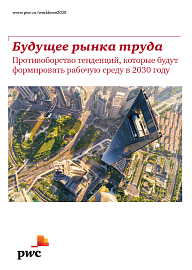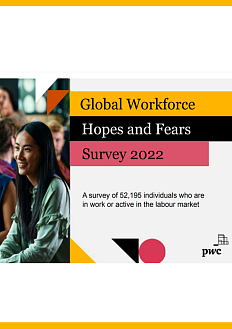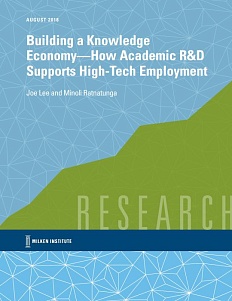This report explores fundamental changes to the workplace that are likely to happen in future. The report draws on research begun in 2007 by a team from PwC and several research institutes and a specially commissioned survey of 10,000 people in developed and developing countries.
Megatrends
The researchers have identified a number of megatrends that shape the future of work. These trends include:
- Technological breakthroughs: Rapid advances in technological innovation
- Demographic shifts: The changing size, distribution and age profile of the worlds population
- Rapid urbanization: Significant increase in the worlds population moving to live in cities (by 2030, the UN projects that 4.9 billion people will be urban dwellers and, by 2050, the worlds urban population will have increased by some 72%)
- Shifts in global economic power: Power shifting between developed and developing countries
- Resource scarcity and climate change: Depleted fossil fuels, extreme weather, rising sea levels and water shortages.
These megatrends have formed the foundation for PwC scenarios for the future of work (the Worlds of Work) because the way humans respond to the challenges and opportunities which the megatrends bring will determine the worlds in which the future of work plays out.
The Four Worlds of Work in 2030
The PwC analysts suggest four possible scenarios of the future of work by 2030. For each scenario, the report gives a description, main features, and the effect on the workforce, the HR function, and work processes.
1. The Yellow World: Humans come first Social-first and community businesses prosper. Humanness and public duty are highly valued.
2. The Red World: Innovation rules The pace of innovation is unprecedented. Digital platforms shape regulation and give reach and influence. Specialists and niche profit-makers flourish.
3. The Green World: Companies care Concerns about demographic changes, climate and sustainability become key drivers of business.
4. The Blue World: Corporate is king Big company capitalism rules. Individual preferences dominate.
How digital is changing work
Another focus of the report is the impact of digital and AI on work. The authors point out that some jobs are at risk of automation. For example, in the USA the share of such jobs reaches 38%. Jobs at risk of automation by country.

Workforce of the future
The authors suggest steps that individuals, businesses, and HR specialists could take in order to adapt to the changing world of work, respond to the megatrends, and find a strategy that will work best in each scenario.
To summarize, this report offers four very different models with huge implications for the world of work. The analysts emphasize that the forces shaping these Four Worlds of Work shouldnt be ignored by governments, organisations or individuals if they wish to be successful in future.






